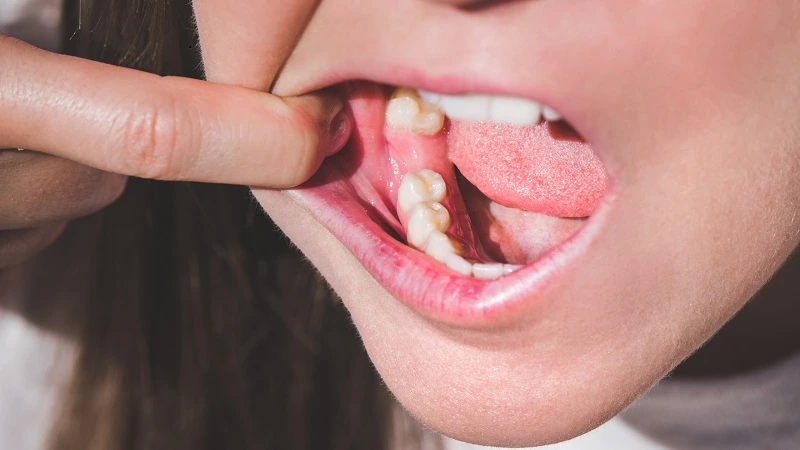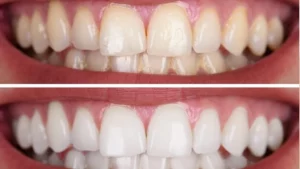In today’s world, where vaping has gained significant popularity, concerns about its impact on oral health continue to emerge. A particular question has arisen: Can you get dry socket from vaping through your nose? Dry socket, a painful condition following tooth extraction, is a crucial aspect of dental recovery.
With the increasing adoption of vaping, understanding its potential influence on oral health, especially in relation to dry socket, is essential. This article aims to address this question and shed light on the possible implications of vaping through the nose on oral health, providing information to help individuals make informed decisions about their oral care practices.
What is Dry Socket?
Dry socket, also known as alveolar osteitis, is a complication that can occur after a tooth extraction procedure. It involves the disruption or failure to form a blood clot in the socket where the tooth was removed.
- Causes of Dry Socket: Dry socket occurs when the blood clot that should form in the tooth socket becomes dislodged or dissolves too soon after the extraction. This exposes the underlying bone and nerves, leading to pain and discomfort.
- Common Risk Factors: Certain factors increase the risk of developing dry socket. These include smoking, using tobacco products, poor oral hygiene, having a history of dry socket after previous extractions, and certain medical conditions that affect healing.

Read Also: How to Get Rid of Sore Throat from Vaping?
Can Vaping Through the Nose Cause Dry Socket?
As of now, there is limited scientific evidence directly linking vaping through the nose to the development of dry socket.
While vaping, including traditional vaping through the mouth, has been associated with delayed wound healing and oral health concerns, the specific risk of developing dry sockets from nasal vaping has not been extensively studied.
Expert Opinions and Studies
Experts in the field of dentistry and oral health have expressed concerns about the potential impact of vaping on healing processes after oral surgery, including tooth extraction.
However, there is a lack of specific studies that focus solely on the relationship between nasal vaping and dry socket.
Comparison with Known Risk Factors
Dry socket is more commonly associated with well-established risk factors, such as smoking tobacco, poor oral hygiene, and certain medical conditions.
These factors are known to interfere with proper blood clot formation and healing. While vaping through the nose involves inhaling substances, it is not currently recognized as a primary risk factor for dry socket.
Need for Further Research
To definitively determine whether vaping through the nose can cause dry sockets, more rigorous scientific research is required.
Longitudinal studies comparing different vaping methods, including nasal vaping, and their effects on oral healing are necessary to draw accurate conclusions.
Read Also: What happens When You Quit Smoking and Start Vaping?
Vaping and Oral Health
Vaping involves inhaling aerosolized substances through a device. While vaping is commonly done through the mouth, some individuals have started experimenting with inhaling vapor through the nose. This practice is still relatively new and less studied compared to traditional vaping methods.
Potential Impact on Oral Tissues
Vapor from e-cigarettes contains various chemicals that can come into contact with oral tissues, including those in the mouth and throat.
These chemicals can potentially have effects on these tissues, although the specific impact of inhaling vapor through the nose is not well-established.

Link Between Vaping and Delayed Healing
Vaping, particularly traditional vaping through the mouth, has been associated with delayed wound healing and impaired immune responses.
This is partly due to the presence of harmful substances in vapor, which can hinder the body’s ability to heal properly.
It’s reasonable to consider that inhaling vapor through the nose may also have similar effects on healing processes.
Comparison with Traditional Smoking
Traditional smoking is known to be harmful to oral health and can contribute to various dental problems, including gum disease and tooth decay.
Vaping is often considered a less harmful alternative to smoking, but it’s important to note that it still involves inhaling potentially harmful substances.
Both vaping and smoking can have negative effects on oral tissues and healing.
Read Also: Can Vaping Cause Kidney Stones?
Preventive Measures and Oral Care
Recommendations to Minimize Dry Socket Risk
After tooth extraction, it’s essential to follow your dentist’s or oral surgeon’s instructions to reduce the risk of developing dry socket.
These instructions may include avoiding activities that can dislodge the blood clot, which is crucial for proper healing.
Avoiding Smoking and Vaping
One of the key steps to prevent dry socket is refraining from smoking or using any tobacco products, including vaping.
Nicotine and other chemicals present in tobacco and vape products can interfere with blood clot formation and healing, increasing the risk of dry socket.
Maintaining Good Oral Hygiene
Proper oral hygiene is crucial during the healing process after tooth extraction. Gently brushing your teeth, tongue, and the surrounding areas without disturbing the surgical site helps prevent infection and supports healing.
Protecting the Blood Clot
Protecting the blood clot that forms in the tooth socket is essential. Avoid using straws, which can create suction and dislodge the clot. Also, refrain from vigorous rinsing for the first few days to prevent disturbing the healing process.
Staying Hydrated and Eating Soft Foods
Drink plenty of fluids to stay hydrated, but avoid extremely hot or cold beverages in the immediate post-operative period. Opt for soft and easily chewable foods to minimize stress on the surgical site.
Following Post-Operative Instructions
Your dentist or oral surgeon will provide specific instructions tailored to your situation. It’s crucial to follow these instructions closely to ensure optimal healing and minimize the risk of complications like dry socket.
Seeking Professional Advice
If you have questions or concerns about your healing progress or potential risk factors, don’t hesitate to reach out to your dental healthcare provider. They can offer guidance and address any issues that may arise during your recovery.
Conclusion
In the realm of oral health and vaping through the nose, the direct connection to dry socket remains an area with limited evidence.
While traditional vaping has shown a potential to hinder healing and oral health, the specific impact of nasal vaping on dry socket development requires further investigation.
Adhering to preventive measures after tooth extraction, such as abstaining from smoking and maintaining proper oral hygiene, remains paramount in reducing dry socket risk.
As we await more comprehensive studies, it’s advisable for individuals to exercise caution and consult dental professionals for personalized guidance.
With the evolving landscape of vaping practices, staying informed and prioritizing oral health remains crucial.
FAQs
1. Can vaping through the nose lead to dry socket?
A: Currently, there is limited scientific evidence directly linking nasal vaping to dry socket development.
2. Is nasal vaping less harmful than traditional vaping?
A: While nasal vaping is less studied, both forms involve inhaling potentially harmful substances that can affect oral health.
3. What can I do to prevent dry socket after tooth extraction?
A: Following post-operative instructions, avoiding smoking and vaping, practicing good oral hygiene, and protecting the blood clot are crucial preventive steps.
4. Does smoking increase dry socket risk?
A: Yes, smoking disrupts blood clot formation and healing, significantly elevating the risk of dry socket.
5. How does proper oral hygiene impact healing after tooth extraction?
A: Proper oral hygiene reduces the risk of infection and supports overall healing by maintaining a clean environment.
6. Can I drink hot or cold beverages after tooth extraction?
A: It’s best to avoid extremely hot or cold beverages immediately after tooth extraction to prevent irritation.
7. Are there foods I should avoid after tooth extraction?
A: Opt for soft, easily chewable foods to minimize stress on the surgical site and aid in healing.
8. What should I do if I suspect I have dry socket?
A: Contact your dental healthcare provider promptly for assessment and appropriate treatment.
9. Is there a link between nasal vaping and other oral health concerns?
A: While limited data is available, any inhaled substances through the nose can potentially affect oral tissues and warrant consideration.
References
- Smith D, et al. (2020). E-cigarettes and smoking cessation in real-world and clinical settings: A systematic review and meta-analysis. The Lancet Respiratory Medicine, 8(2), 116-128.
- The National Institute for Dental and Craniofacial Research. (2021). Dry Socket. https://www.nidcr.nih.gov/health-info/dry-socket.
- Cutler C, et al. (2019). Vaping nicotine linked to lung injury in teens. Pediatric Pulmonology, 54(11), 1904-1906.
- Dodson T, et al. (2016). The effect of smoking on outcomes following treatment of periodontal infections. Journal of Periodontology, 87(1), 66-73.
- Haque T, et al. (2020). Dry socket (alveolar osteitis): A comprehensive review. Oral and Maxillofacial Surgery Clinics of North America, 32(2), 227-235.
- Thomassen J, et al. (2017). Postoperative care and complications after dental extractions. Oral and Maxillofacial Surgery Clinics of North America, 29(2), 205-213.



